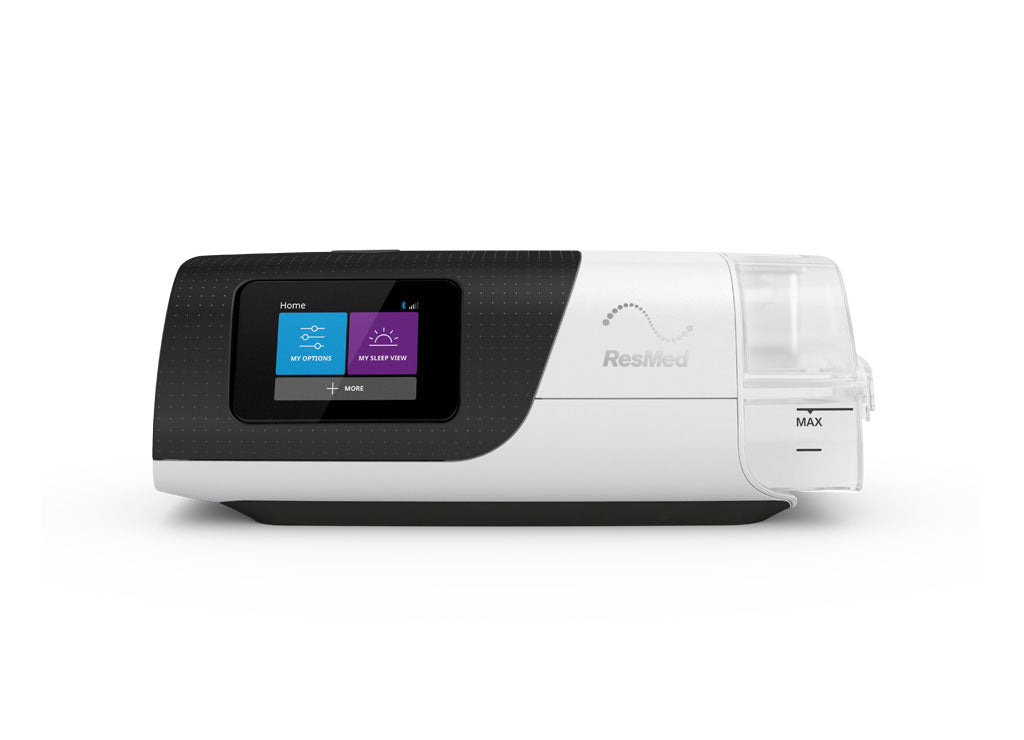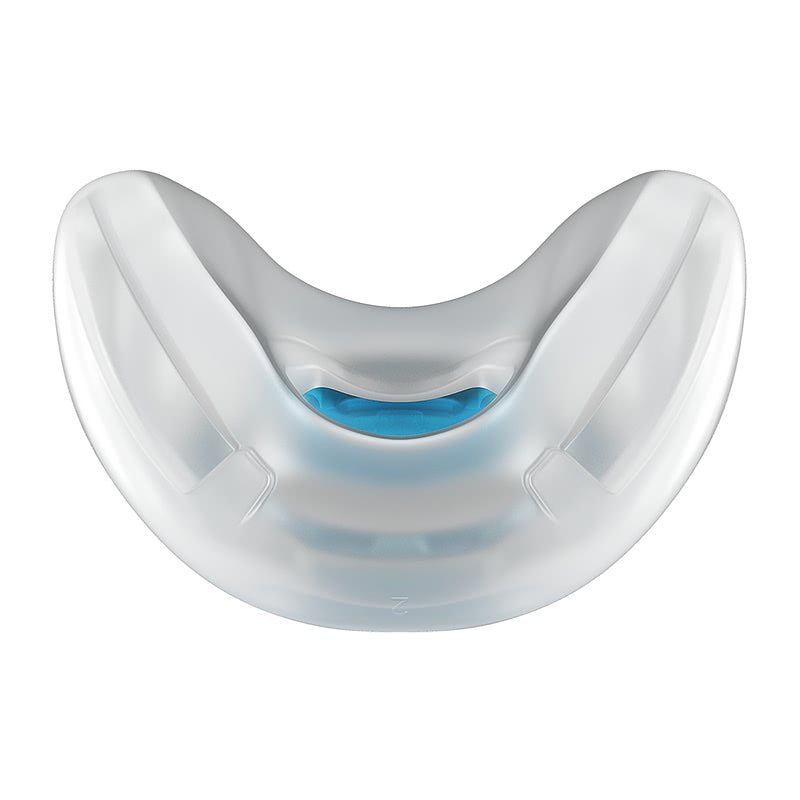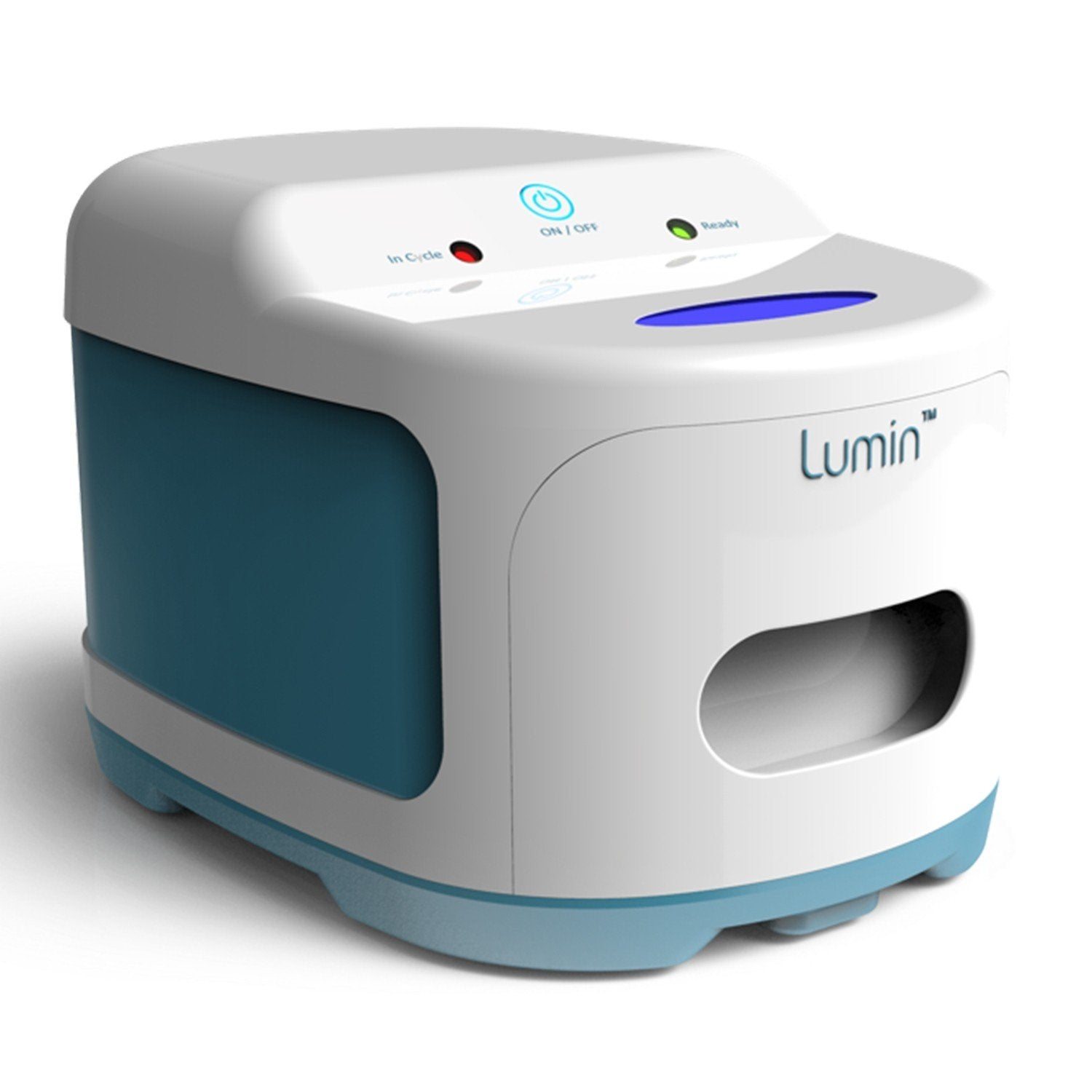
New year, new you: Improve your sleep health
Share
“New year, new you” is an age-old saying, but it still resonates. Especially when the “new you” is looking to make a serious change in your health. More specifically, sleep health as it relates to obstructive sleep apnea (OSA).
Many people who have sleep apnea don’t even know they have it. It affects more than 1 in 3 men and 1 in 6 women.1
Follow along below to learn more about OSA and how keeping some of the most common New Year resolutions can drastically improve your life.
What is sleep apnea?
Obstructive sleep apnea is the most common form of sleep apnea and occurs when the muscles in the back of your throat relax. When that relaxation occurs, it causes your vital airways to narrow or close altogether as you breathe in. When that happens, your brain detects your troubled breathing and responds by briefly waking you up to reopen the airway. This can happen 5 to 30 times per night and can severely impact your ability to fall into those deep sleep phases that you need.2
What are the symptoms?
Many people who have sleep apnea don’t even know they have it. It may be easy to pass off symptoms of sleep apnea as common bedtime quirks, but they can lead to serious health risks if left untreated. Here are some of the most common sleep apnea symptoms:
- Loud snoring
- Awakening with dry mouth
- Excessive daytime sleepiness (EDS)
- Morning headaches
- Insomnia
- Lack of energy
- Lack of concentration, forgetfulness
- Breathing is briefly stopped during sleep – a partner would likely report this to you
Keep your new year resolutions
It’s easy to make new year resolutions, but it’s hard to keep them. According to research done by the University of Scranton, 92% of people who make resolutions, ultimately break them.3Read some of the tips below to help you break outside of that 92%.
- Lose weight. One of the easiest resolutions to make and one of the hardest to keep is to shed pounds. It’s well-known that a link between being overweight and sleep apnea exists. According to Stephanie Watson of Harvard Health Publishing, “People who are overweight have extra tissue in the back of their throat, which can fall down over the airway and block the flow of air into their lungs while they sleep.”4 She goes on to acknowledge that while losing weight isn’t as simple as it may seem, and won’t cure your OSA, it can drastically improve your condition. “Losing just 10% of body weight can have a big effect on sleep apnea symptoms.”4
Want to learn more about weight loss and sleep apnea? Check out the most frequently asked questions about the two subjects right here.
- Exercise. Exercising on a regular basis can not only improve your mind and body but can also contribute to getting better sleep at night. Johns Hopkins Medicine reports that moderate routines of aerobic exercise increase the amount of slow-wave sleep (deep sleep) you get.5 Getting a proper amount of deep sleep every night is important for allowing your brain and body to rejuvenate.
You shouldn’t be worried about having to train like a long-distance runner in order to get better sleep. Dr. Charlene Gamaldo says that if you engage in at least 30 minutes of reasonable aerobic exercise, you may see a positive change in sleep that night.5 She also recommends picking an exercise you like so it will be easier to stick with.
- Travel more. If you think that your sleep apnea will keep you from traveling more this year, we have what you need. ResMed AirMini™ is the smallest portable CPAP on the market. It utilizes waterless humidification6 for ultimate convenience and its premium travel bag and other accessories make therapy on the go easy to tackle. Check out Stacy’s AirMini story to learn more about how traveling with sleep apnea and your equipment can be easier than you think.
- Establish and stick to a bedtime. This year, you’re getting on a proper sleep schedule. Starting tonight, set a reasonable bedtime for yourself and follow it. But don’t just set a bedtime; it’s also important to keep to a regular wake-up time. For adults (even older adults), 7–8 hours of sleep each night is what’s recommended, so be sure to create a schedule that ensures you get the proper amount of shut-eye on a nightly basis. Sleeping better is one of the first steps to improving the symptoms of sleep apnea.
If you don’t trust yourself with making and keeping a sleep schedule, the Bedtime feature in the iPhone Clock app will pick up your slack.
- Drink less alcohol. It’s common knowledge throughout the medical world that alcohol and sleep apnea are deeply connected. In fact, the connection between the two is so widely known that most articles about healthy sleep habits will have some language about drinking less or none at all.
The usual interpretation of this advice is all about drinking in moderation and avoiding alcohol before bedtime. Of course, if you’re a heavy drinker that advice switches from moderation to quitting it altogether because, “Heavy drinkers appear to be at increased risk for OSA, especially if they snore, though even modest amounts of alcohol greatly increase the frequency and severity of apneas … especially in the first hours of sleep when blood alcohol levels are highest,” according to a study published in the Journal of Substance Abuse.7
Even in the event that you’re just a social drinker, it’s still important to cut out alcohol before bed. When it’s in the body at bedtime it alters the sleep cycle, and as the night continues, the disruptive effects of alcohol become more prominent.
- Eat healthier. Eating healthy won’t directly aid your sleep apnea, but it will help you to lose weight, which can lead to a host of other positive health effects. One such being a reduced neck circumference that will take the pressure off your airway, making it easier for your body to keep it open. Another positive consequence of eating healthier is that it may give you the energy you need to exercise and stay active.
- Quit smoking. Smoking is bad for your health across the board, but you’ve probably never made the connection between cigarettes and how they affect your sleep.
Nicotine is a stimulant that increases your alertness and heart rate, making it difficult to fall asleep when it’s time to go to bed. Once you’re asleep, nicotine withdrawal continues through the night, and the “rebound effect” of it can increase the number of apneas you experience.8
If you’re having trouble quitting cigarette smoking and nicotine use on your own, consult with your doctor about methods that can help you reduce your dependence.
This year it’s all about you and your health. Here’s to a wonderful new year and many nights of great sleep.




